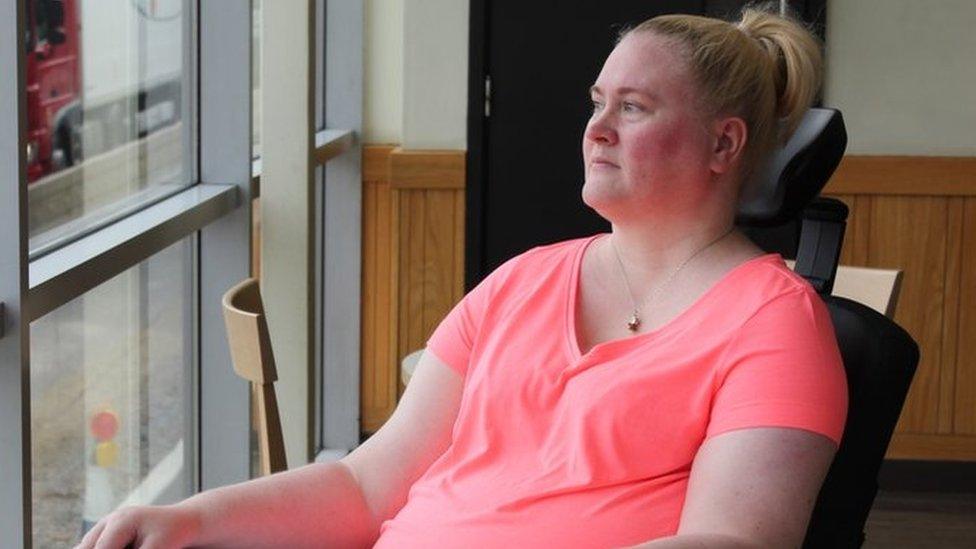Covid: Shielding woman pays £2,000 for immunity-boosting drug
- Published
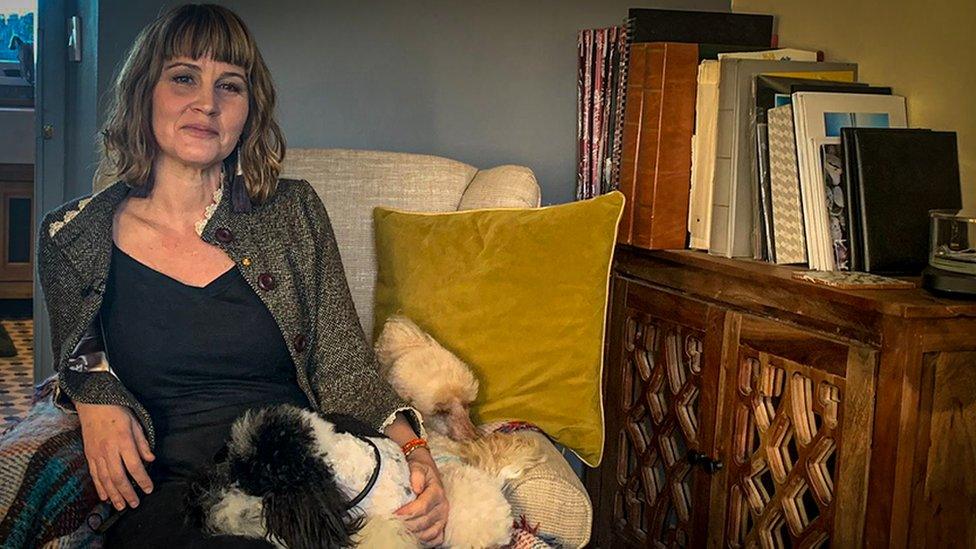
Abigail Wooding was still shielding after restrictions were lifted because her body didn't produce Covid antibodies
A woman who shielded from Covid-19 for two-and-a-half years has spent more than £2,000 getting a drug to improve her immunity.
Abigail Wooding took Evusheld because she has a weak immune system and is less protected by Covid vaccines.
There have been calls for the Covid prevention drug to be made available for free on the NHS.
The Welsh government said it was awaiting guidance from the medicines regulator.
Evusheld is an antibody treatment taken twice a year to protect people like Abigail who have a weaker immune system.
The 50-year-old from Narberth, Pembrokeshire, has common variable immunodeficiency, external which puts her at a higher risk of getting seriously ill from Covid.
The treatment is currently only available privately after the UK government said it would not supply Evusheld due to a lack of evidence over how well it works against the Omicron variant.
Abigail had six Covid vaccines but her body failed to produce the antibodies needed to fight the virus.
So she and her family remained cautious, even after restrictions ended.
"You're seeing people go out about their business and wanting to do the same and wanting to see your friends and family," she said.
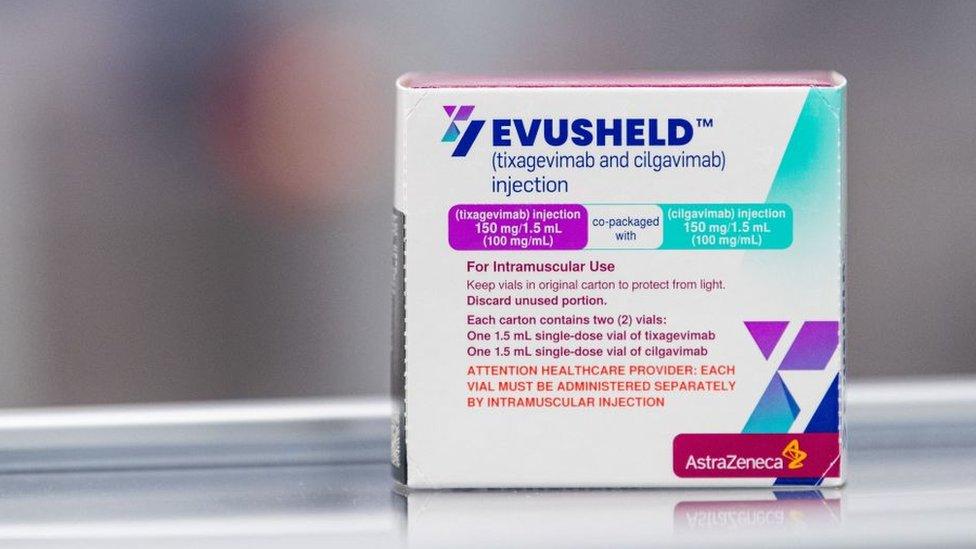
The antibody treatment boosts protection against Covid for those whose immune systems do not respond well to vaccines
"If you are still the one shielding or wearing a mask, maybe [people may think] you're a bit hysterical, which is quite hard."
Ms Wooding's teenage daughter started home-schooling because she was was anxious about bringing the virus into their home.
"It wasn't fair to her more than anything else. It's just too difficult, it's too restrictive. So, I didn't really feel I had much of an option," said Ms Wooding, who said it prompted her to pay for Evusheld in November.
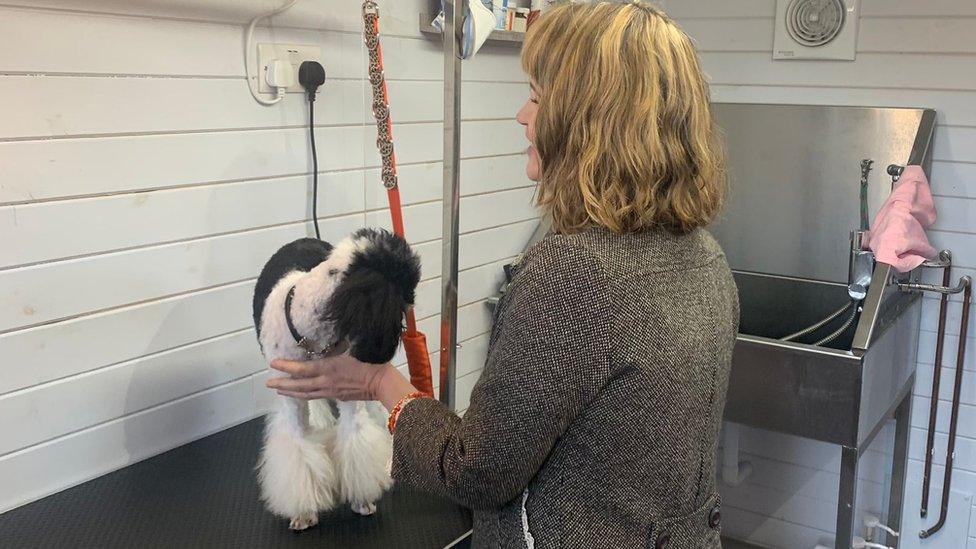
Abigail felt it was not fair to her family to continue shielding so she bought a dose of Evusheld on her credit card
As well as the cost of the dose she had to pay for a private consultation, for the drug to be administered, and for her own travel to London, costing her around £2,000 in total.
She said: "I didn't have the money, I had to put it on credit card. And I will have to with the next dose again."
'Pay for normality'
Testing after the Evusheld jab showed she had Covid antibodies for the first time, and she said the impact on her and her children's lives has been huge.
"Going in and out of friends' houses, having friends over for lunch, going to restaurants, cafes, the pub," she said.
"It's normality. But I shouldn't have to pay for normality" she said.
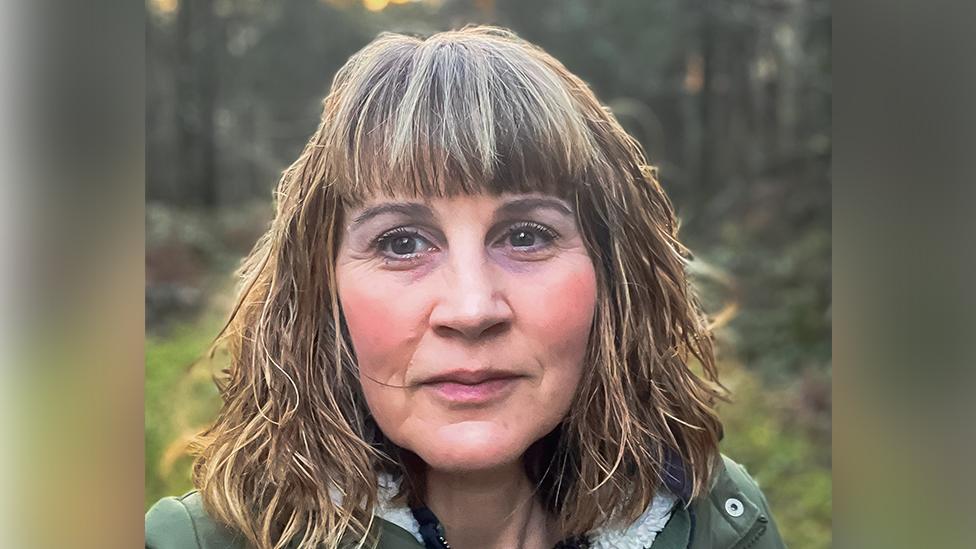
Abigail says not having to shield is "normality" something she thinks she should not have to pay for
Evusheld was approved for use in March, external, but was reviewed after the Omicron variant emerged.
Data published in July last year showed people who had taken it were half as likely to get Covid-19 as those who did not take the drug.
Its manufacturer AstraZeneca said there was "ample real-world data" that it worked. It is currently available in 32 countries, including the United States, France, and Canada.
Richard Stanton, professor of virology at Cardiff University, said: "Having these kinds of drugs available is really important to provide immunocompromised people with some confidence that, if they catch the virus, there's a way of treating it and a way of preventing them ending up in hospital."
'Completely unacceptable'
The UK government announced in August that it would wait until Evusheld had been appraised by the National Institute of Clinical Excellence (NICE) before deciding if it will be made available on the NHS.
NICE began evaluating whether Evusheld is clinically and cost effective in August, with the full appraisal expected to take about eight months.
People who take immunosuppressants, including leukaemia, kidney, and pulmonary fibrosis patients, could also benefit from Evusheld.
Steve Jones, chair of Action for Pulmonary Fibrosis, said: "We are in a situation now where even if it NICE are positive, it is unlikely that Evusheld will become available until after Easter. One full year after America and other developed countries. This is completely unacceptable to patients."
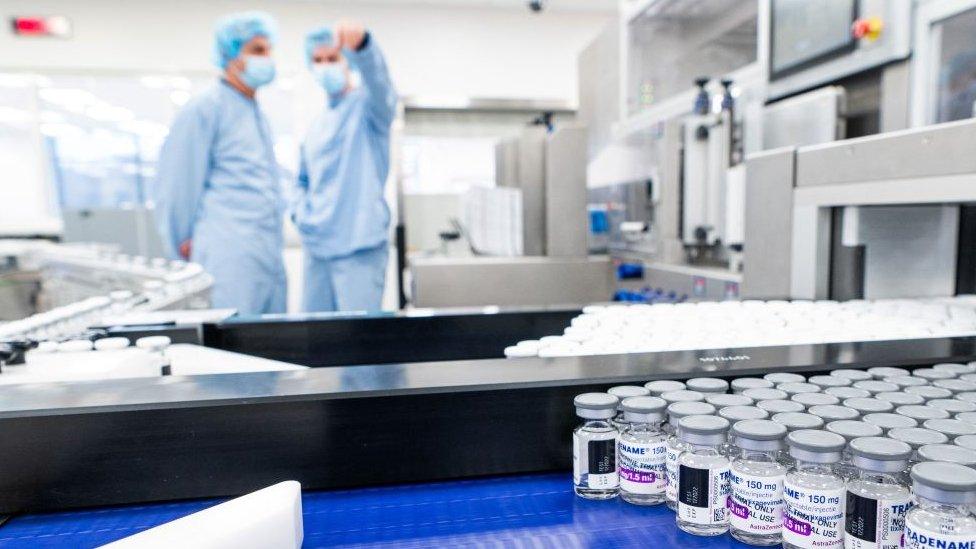
The Welsh government said there are no plans to offer Evusheld on the NHS
A Welsh Government spokesperson said: "There are no plans to procure Evusheld at this time. There has been no significant new evidence to suggest it is effective against omicron variants and recent research suggests its effectiveness is compromised against newer variants this winter.
"NICE is currently considering the evidence for Evusheld and we will review the position once the guidance is published."
Related topics
- Published30 May 2022
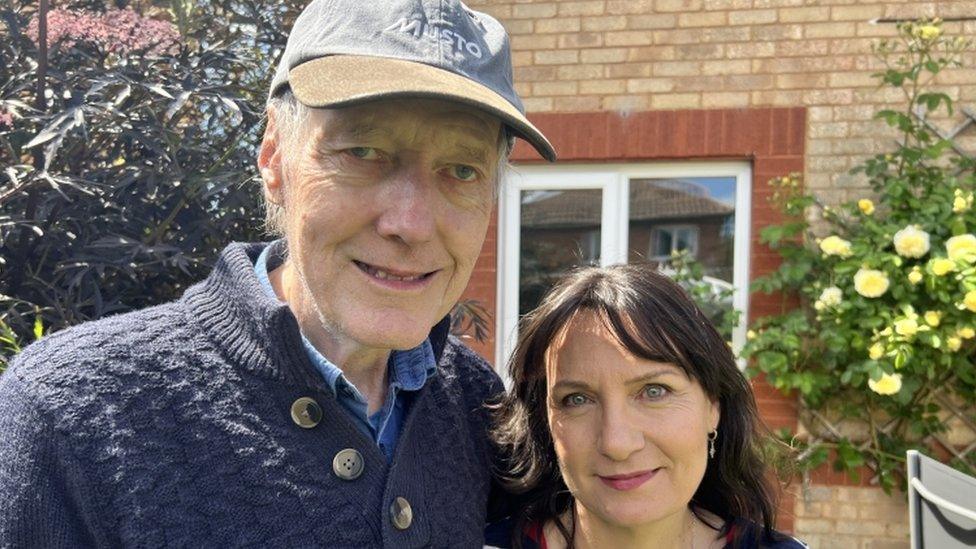
- Published22 April 2022
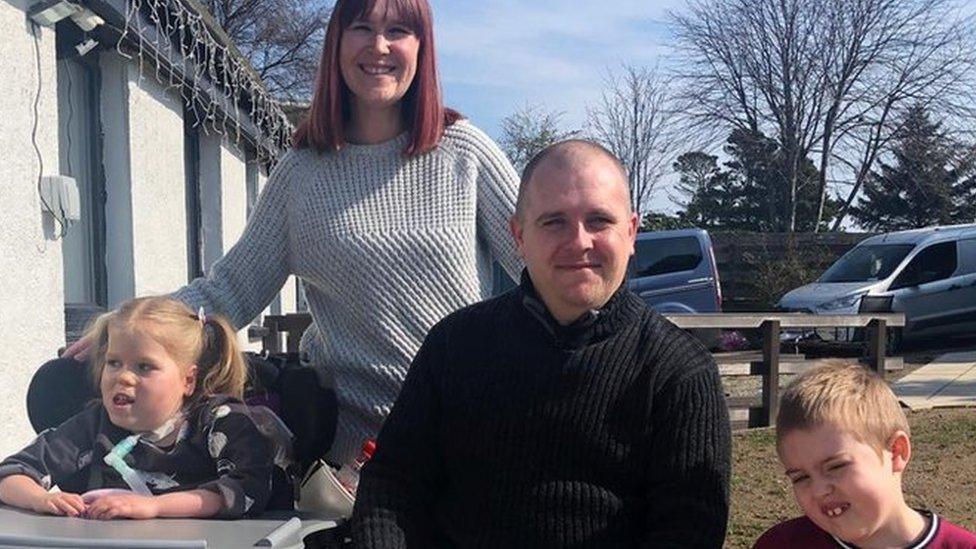
- Published10 February 2022
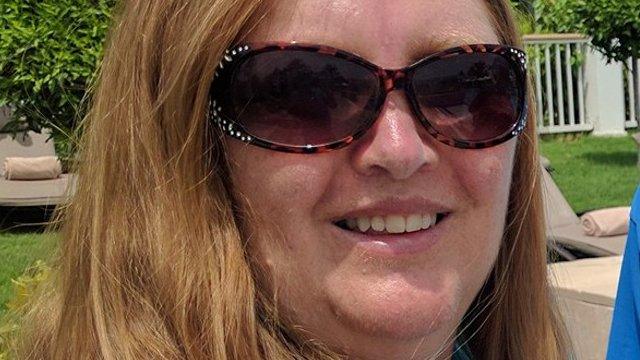
- Published18 December 2021
